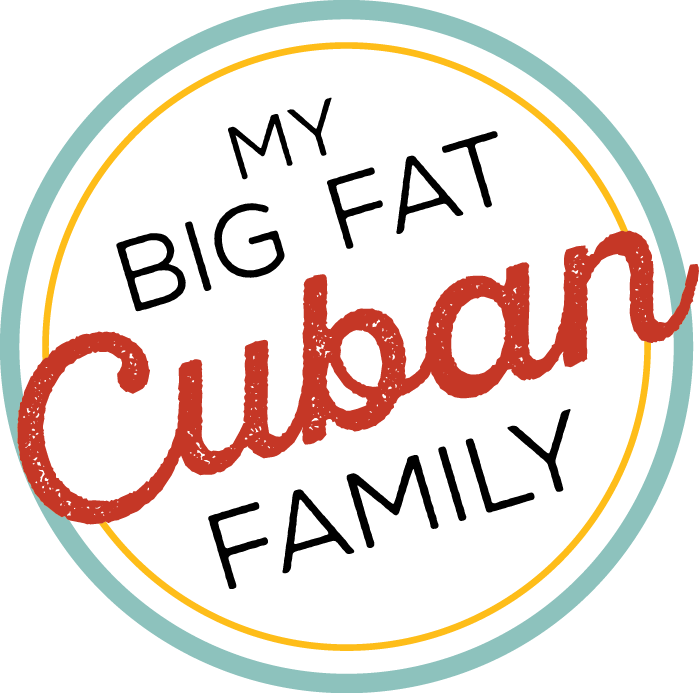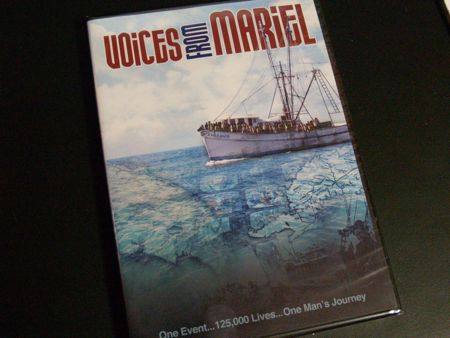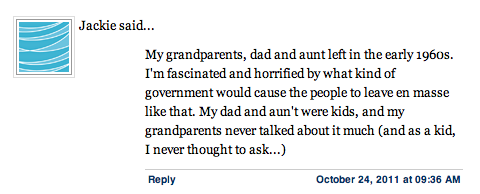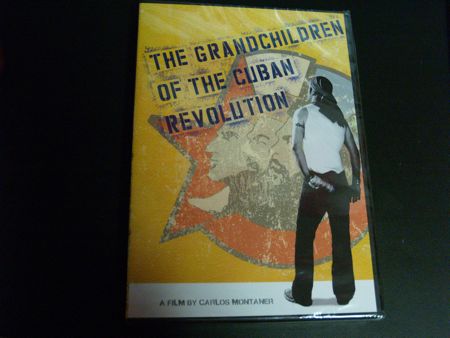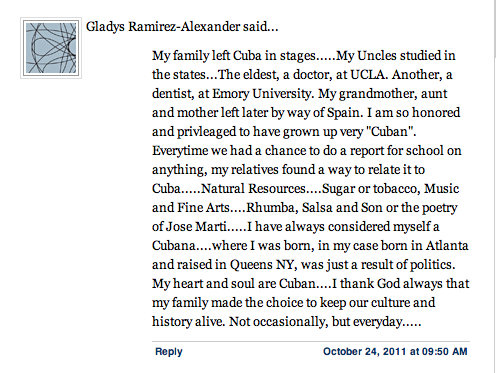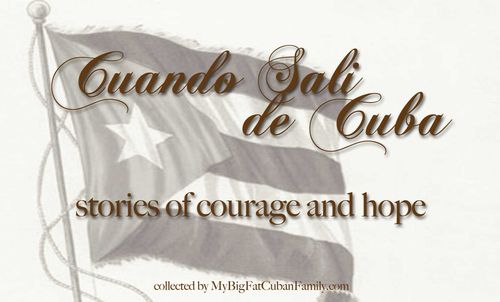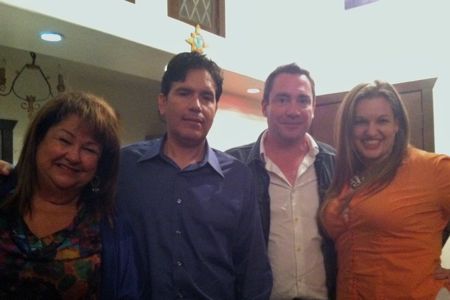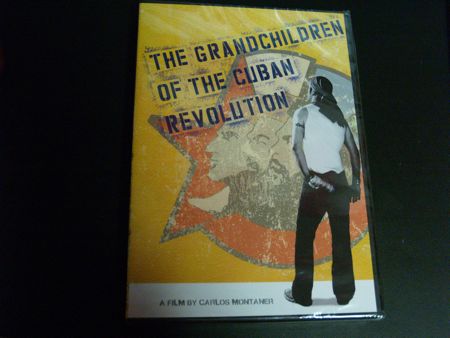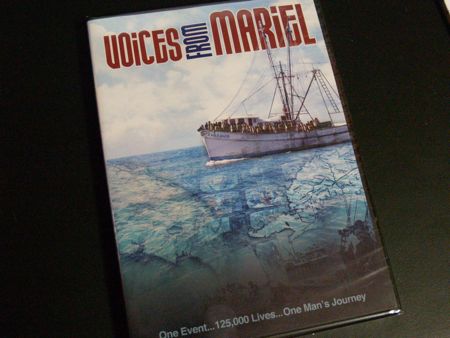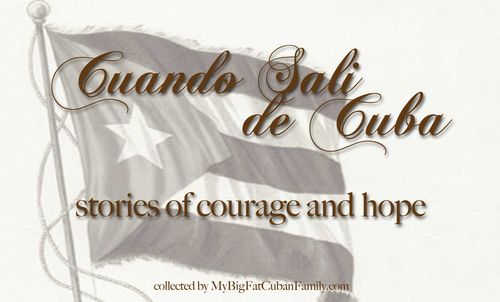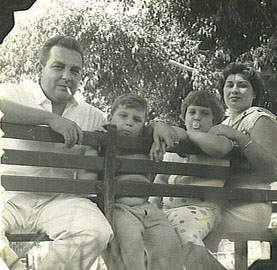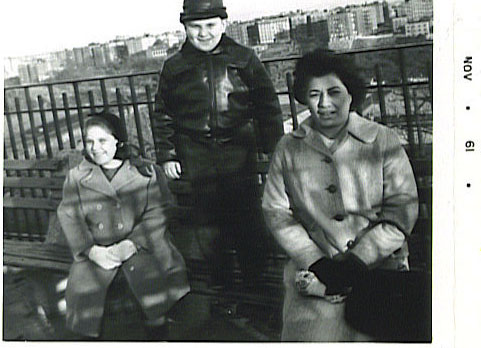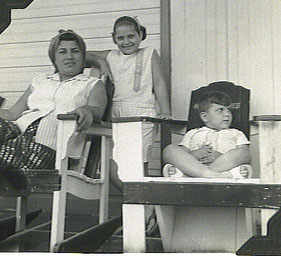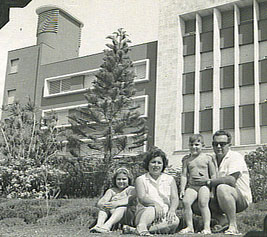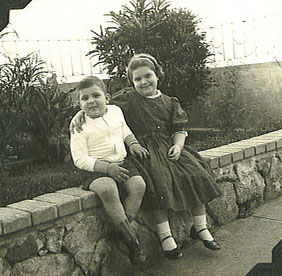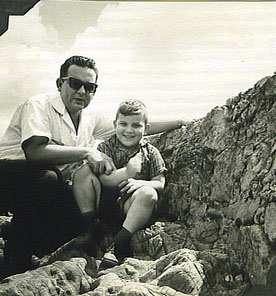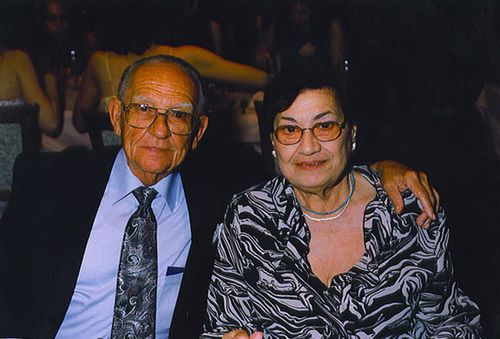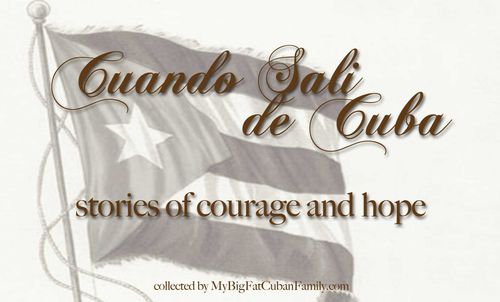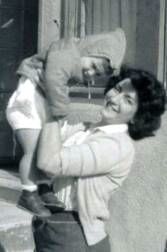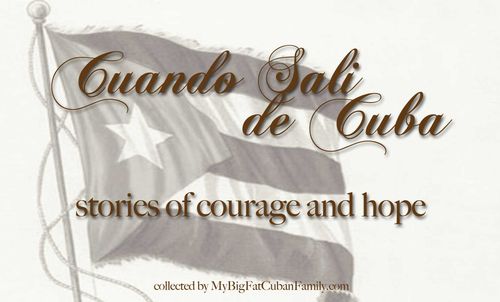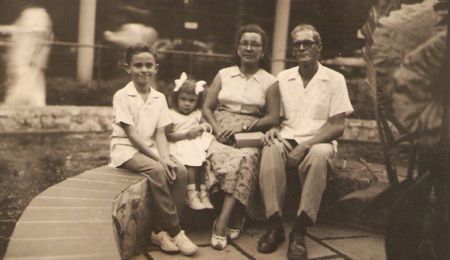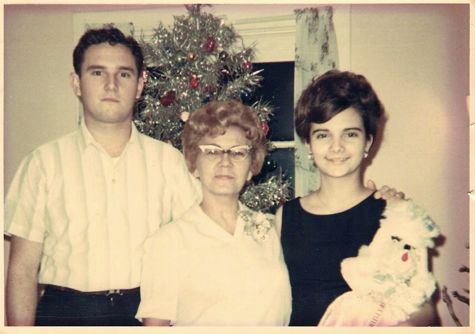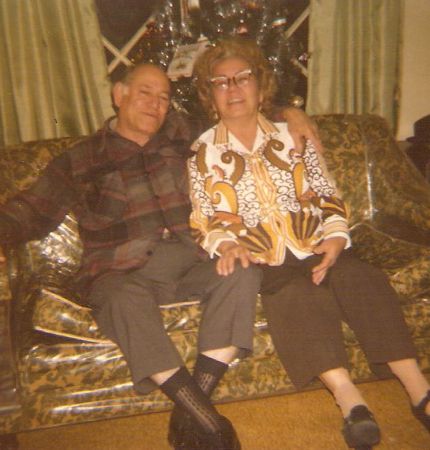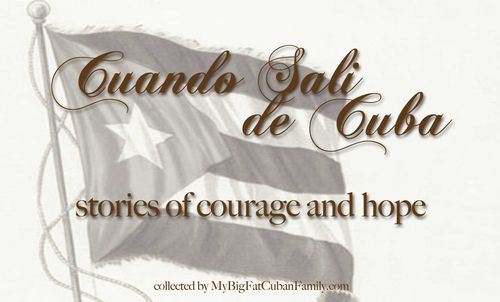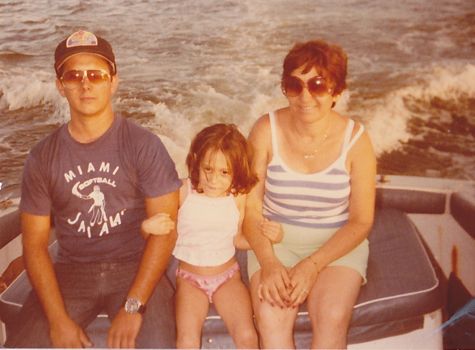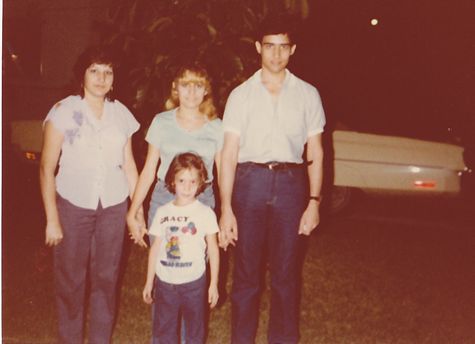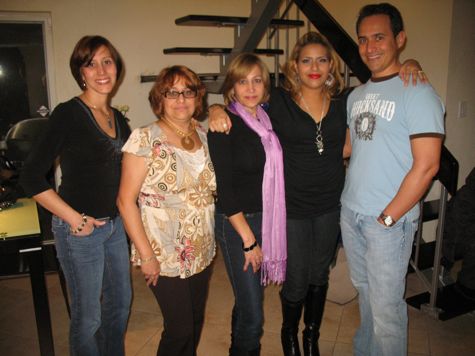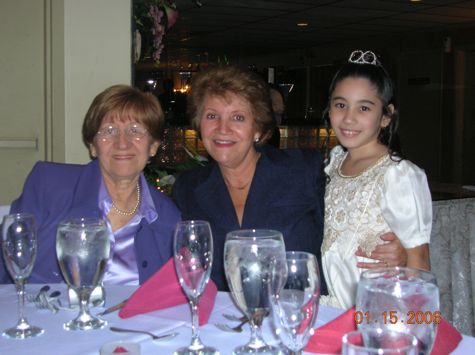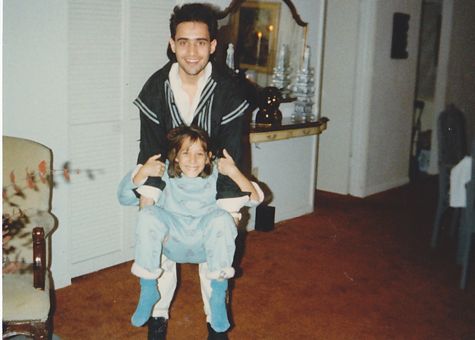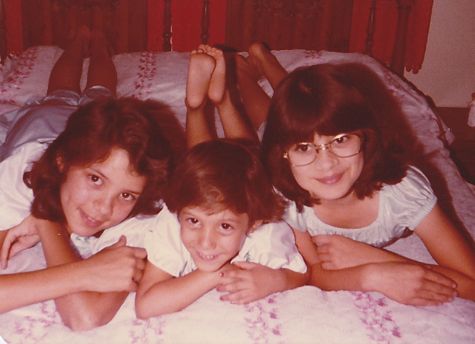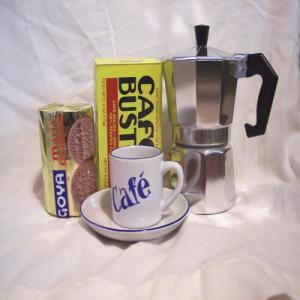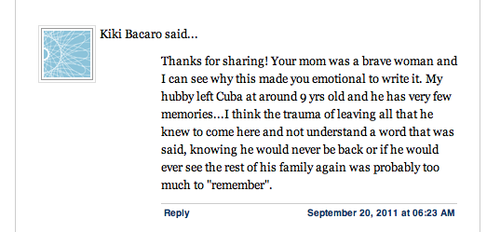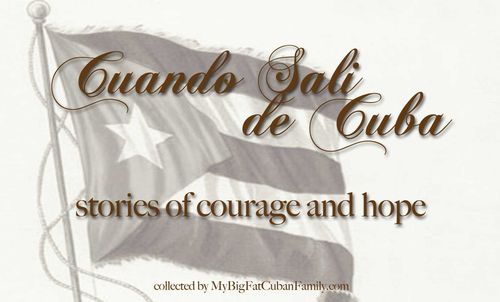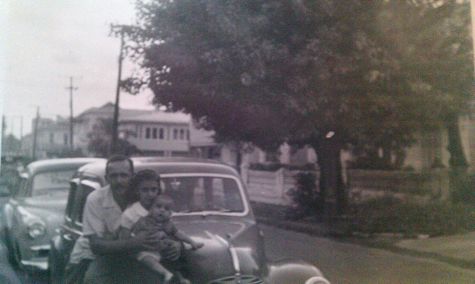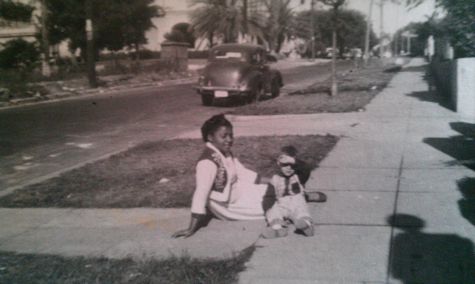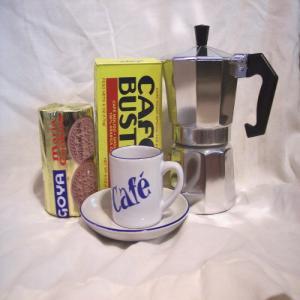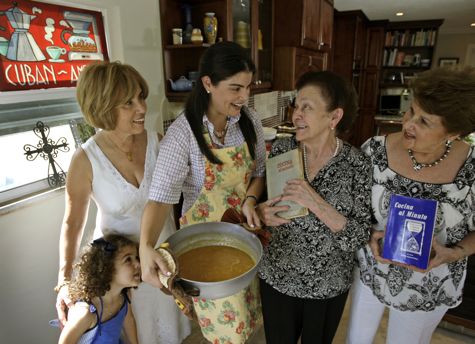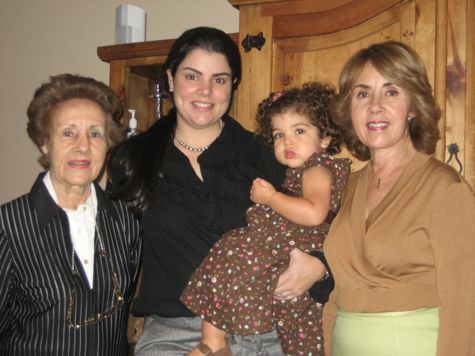Marta here: Welcome to my ongoing celebration of Hispanic Heritage Month: Cuban-Style with a series of stories about Cuban American families and how they ended up here in the U.S.:Cuando Sali de Cuba, stories of courage and hope.
Today I want to introduce you to my friend, Jorge Carmona.
He is one of the Cuban masterminds behind Dos Cubanos Pig Roasts (Texas, you are so darn lucky!) along with Joey Lay, who's story I will also be sharing in the coming weeks. I had the privilege of meeting Jorge and his amazing family in San Antonio during the Cooking With the Troops event.
In his essay, he celebrates the hardships of being new immigrants to this country and also the fun of being Cuban in America. As far as I'm concerned, the Carmonas are just like family to me. Please enjoy.
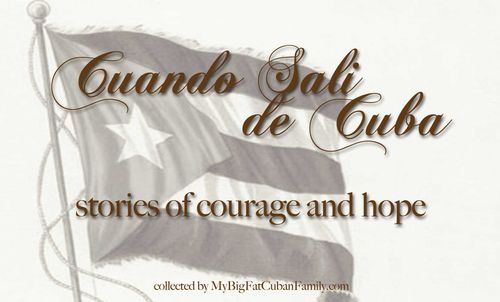
My story is not unlike the countless stories of Cubans who came to this amazing country in search of freedom and opportunity. Many Cuban families have a similar tale as is evident here. Anyone who knows me knows that I do not take for granted the struggles and sacrifices my family went through to provide a better life for all of us.
Before my parents left Cuba, my grandmother, Bertha, informed them she would be coming along. She wanted to make sure I was well taken care of and she wanted to be there for her daughter and son in law. Unfortunately, my father’s parents would not leave. As much as my father tried to convince them they just couldn’t leave Cuba. I imagine they all felt it would be temporary and that eventually we would all return. Heck, I expect many Cubans felt the same. My father would say it all the time “Once the Castro’s are gone, we would return.”
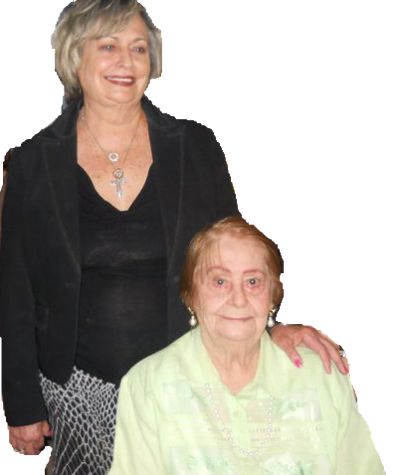
My family arrived in Miami in 1970. “Una finca.” A farm, as my parents called it. So you know, if not for us Cubans, Miami would still be a “finca."
My parents had nothing but a small suitcase and some personal belongings. They had lots of ambition and drive though. Fortunately for us, some old friends who left Cuba before them took us in until we got settled. They also provided my parents with much advice and support. As my parents would say, “Los Oliveras are a gift from heaven”.
After a few years in Miami, and coming to the realization that no jobs were available, my parents made a decision to pack their bags again and move north to Chicago, Illinois. Why Chicago, you ask? Well as my parents put it, that’s where the jobs were and they would be forced to assimilate into this new world.
When we arrived in Chicago, A Cuban Pastor, Roberto Millan learned of my parents and immediately helped us get settled. It seems that in those days if you were Cuban, other Cubans who went through the same were eager to help.
Chicago has some harsh winters and coming from a tropical island my parents had no clue what they were going to experience. They had been warned, yet they didn’t know. As with many immigrants, regardless, they worked their tails off. Both my mother and father worked in factories and worked at anything they could. My father, a barber in Cuba, saved enough to buy himself some barber equipment and he soon found a part time job as a barber. They saved everything they could with the ultimate goal of buying a house and a car. In less than three years in Chicago, through hard work, sweat, and determination they accomplished their goals.
Even though my parents worked all the time and saved money like it was going out of style, they always managed to provide us with anything we needed. We always had food on the table, provided by my grandmother. We had a roof over our heads, nice clothes and we were able to do things that other Americans enjoyed.
I played little league baseball. We went on vacations. We had picnics at Santa’s Village.
Speaking of Santa, my parents learned of this amazing guy and had him bring me all sorts of gifts on Christmas. Luckily, Santa was around because as my father would always inform my sister and I, money did not grow on trees. This Santa guy brought me almost all the toys from the Sears catalog and it didn’t cost my dad a dime! The point is, we never felt like we were any different than other kids.
While my parents wanted to assimilate, they never forgot their roots. They would always tell us how proud they were of being in America and having all these amazing opportunities. But like many Cubans would tell you, they still did things, well...like Cubans.
You see my parents were like every other Cuban I know, they were loud, I mean why-you-yelling loud.
They partied. They moved their arms in rapid motions when talking and yes, they caused a scene almost everywhere we went. Just imagine the look on the nurses and doctors faces when all these Cubans congregated in the hospital to celebrate the birth of my little sister, Carmensita. I guess a sign informing guests not to bring a cooler would have been appropriate.
Speaking of crazy, one of my favorite stories was when I was about 8 years old. Cubans love to roast pigs so on Thanksgiving, in addition to a Turkey we roasted a Pig. What could go wrong?
Well in November, Chicago is cold, real “coño que frio” cold. So some crazy liquored up Cubans roasting a pig was a recipe for some good times right? Roasting the pig outside was out of the question. So my father and his other Cuban friends had a brilliant idea. “ Let’s roast it “en el garaje” (the garage). Well you can imagine what happened next. The neighbors immediately called the firefighters and a few minutes’ later firefighters were on the scene. Let’s just say it took a miracle and lots of pleading and yelling when they arrived. Luckily one of the firefighters spoke Spanish and the pig was spared.
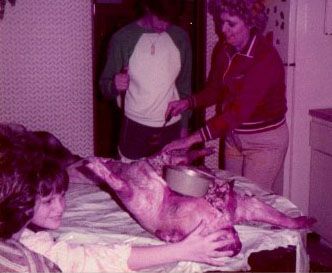
After several years in Chicago, the weather and the crime was starting to get to my parents, we had a nice house, yet our neighborhood was becoming infested with gangs. As my parents tell it, you could hear gunfire at night.
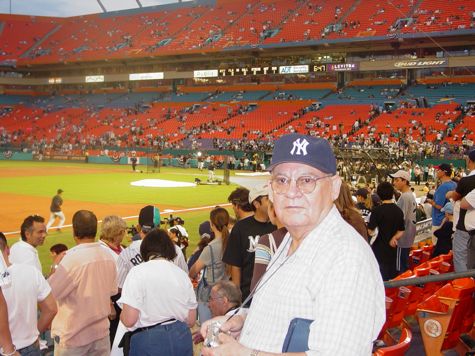
Several of my parent’s friends had children who were recruited and became gang members so my family made another decision so I wouldn’t end up in that situation. They would return to Miami.
I was now 11 years old at the time and my sister was 6 so it was difficult for us to leave our friends, but we had no choice, really. So we moved back to Miami in 1978. Just like everything else they set out to do, my parents accomplished even more in Miami.
My mother went to school to be a stylist and my father worked on getting his barbers license. My father realized his dream of owning his own business, Carmona’s Barber Shop in the heart of Cuban territory, off Flagler and 38th Street. Soon after that my mother realized her dream and opened up her own business, Lily’s Beauty Salon in Pinecrest.
Amazing, they accomplished so much in this country - they did it with hard work, sweat, humility, and pride. My sister and I are what we are today because of them. You see, my parents are my inspiration; they came to a new country, with nothing and became successful Americans, just like they had dreamed of back in 1970 when they left Cuba.
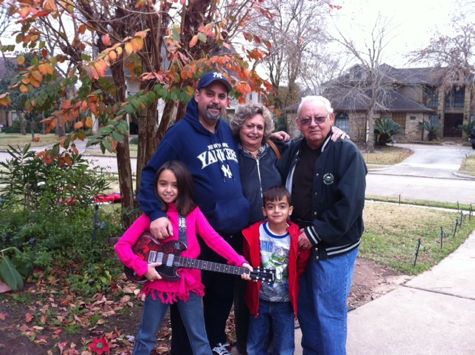
As with many Cubans they always spoke about the beauty of Cuba. They have watched Cuba go from a prosperous free country to one of oppression and despair. I know it hurt them to know that those who remained in Cuba were struggling while they were enjoying life.
My dream was to one-day return to Cuba with my parents and my family, visit my birthplace and see all the beauty they so vividly described to us over the years. Sadly, my dad recently passed away and will not be able to return, but rest assured, one day, if God allows, I will visit Cuba and I will remember all the wonderful stories he shared with us.
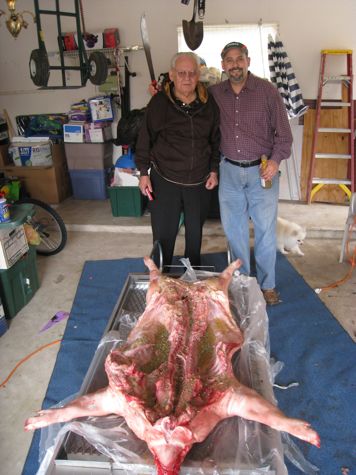
God bless you, abuela, for being there for us, for taking care of us when mom and dad were working.
God bless you mommy for always loving Carmen and I unconditionally and teaching us to appreciate life.
Papi, I miss you so much, but I am grateful that I have you always in my heart. I am grateful that you taught me what being a man is about.
~Jorge A. Carmona
Editor's Note: If you're in Texas and want a one-of-a-kind authentic Cuban party experience, contact Dos Cubanos and they'll show you how it's done, Cuban-style.
To get your mouth watering and inspire you for the upcoming holidays, please "like" Dos Cubanos Pig Roasts on Facebook.
It's not too late to tell your story. Send me an email with "Cuando Sali de Cuba" in the subject line to mdarby(at)cox(dot)net. I will keep posting them as long as you keep sending them. Thank you. Seriously. Thank you so much.
(cross-posted on Babalú blog)
